かならず読んでください
近代合理化の袋小路
Globalizing
modern
medicine and reconsidering about ethno-medicine
池田光穂
言うまでもなく日本の植民地統治は歴史的には後発の部類に属し、また帝国を構築していた周辺部分では1930年代以降、事実上交戦状態にあっ
たために、帝国の社会基盤整備の装置として近代医療を十分に発動機能させることができなかった。これらの特徴は日本の植民地人類学の事情にも通底すると言
える(中生 2000)。また万能科学としての医療に対する専門家たちの信仰は、とくに1930年代以降、今日ではいかにも奇妙で歪(いびつ)ともいえる
現象を引き起こした。
例えば京都帝国大学出身の石井四郎[1892-1959]は
陸軍に軍医として入り、1933年東京の陸軍軍医学校の防疫研究室を経て、
1936年(昭和16年)に関東軍防疫部長に昇進し、細菌兵器の開発に中国人やモンゴル人をつかった人体実験を組織的におこなった[731部隊[ウィキペディア]](cf.
常石 1999)。京都帝国大学で石井の研究指導をおこなっていた清野謙次[1885-1955]は専門の病理学以外にも、人骨の解剖学研究や統計的手法
による日本人の起源論に一石を投じた人として知られているが、1940年代に大学を辞職してから、太平洋協会に属し、膨大な民族医療の文献を渉猟して、
『インドネシアの民族医学』という、今日の医療人類学の先駆けとも言える研究をしている(清野 2001[1943])。もちろん清野は土着医療(「固有
医学」「民族医学」)に対する西洋医療(「真正医学」)の勝利を信じて疑わないのだが、後者の普及のためには現地人社会の理解が欠かせないと主張する。ま
た毒矢の塗り薬などに代表される生薬の知識を、今日で言うところの生物資源としてきちんと記録し、それらの成分を化学分析を通して明らかにすることが「真
正医学」への貢献となることを的確に指摘している。清野を太平洋協会に招いたのは、講座派マルクス主義経済学者であり戦後はアジアの自由と民主主義の擁護
者として神格化される平野義太郎[1897-1980]である。清野謙次は平野の妻が姉妹という義兄弟の関係にあった。平野は太平洋調査会部長の当時、
『大東亜民族誌』において、優生学にもとづく人種主義的蘊蓄を遺憾なく披瀝し、帝国内における日本人と外国人の混血がいかに種族の保存にとって危険である
のかを主張していた(平野 2001[1944]:234)。
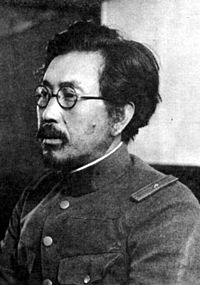 |
Major, later General
Shirō Ishii (1892-1959), in
1932 |
Surgeon General Shirō Ishii (石井
四郎, Ishii Shirō, [iɕiː ɕiɾoː]; June 25, 1892 – October 9, 1959) was a
Japanese microbiologist and army medical officer who served as the
director of Unit 731, a biological warfare unit of the Imperial
Japanese Army.
Ishii led the development and application of biological weapons at Unit
731 in Manchukuo during the Second Sino-Japanese War from 1937 to 1945,
including the bubonic plague attacks at Chinese cities of Changde and
Ningbo, and planned the Operation Cherry Blossoms at Night biological
attack against the United States. Ishii and his colleagues also engaged
in human experimentation, resulting in the deaths of over 10,000
people, most of them civilians or prisoners of war. Ishii was later
granted immunity in the International Military Tribunal for the Far
East by the United States government in exchange for information and
research for the U.S. biological warfare program.
|
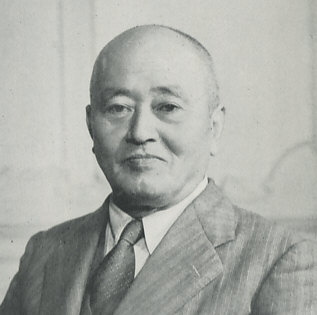 |
Dr. Kenji Kiyono,
1885-1955, a mentor of Dr. and General Ishii in Kyoto Imperial
University |
Kiyono Kenji (japanisch 清野 謙次; *
14. August 1885 in der Präfektur Okayama; † 27. Dezember 1955 in
Meguro, Tokio) war ein japanischer Arzt, Anthropologe und
Archäologe.[1] Er ist in der Medizin für die Entdeckung der
Vitalfärbung bekannt, in der Archäologie für seine Kontroverse über die
Herkunft der Japaner. Er verursachte zudem einen Universitätsskandal
durch ein Diebstahldelikt. Kiyono war verheiratet mit Fumi Yasuba, der
Tochter des Geschäftsmanns und Politikers Yasuba Suenobu (1858–1930).
Die Ehe blieb kinderlos.[2]
|
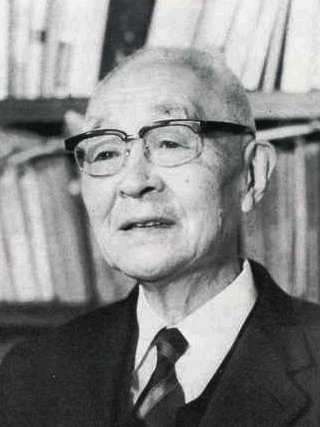 |
Yoshitaro
Hirano, 1897-1980, law student, marxist, anti-communist, and
peace activeist |
|
他方で、日本の国内(および朝鮮半島の一部)では、それまでになかったさまざまな医療の社会化の運動が試みられた。これらは、戦前のファシズ
ム体制に対する一種の草の根レベルでのカウンター運動とこれまで評価されてきたものである。例えば1920年代から30年代にかけておこなわれるように
なった無産者診療運動。これは都市部における社会主義労働活動の一環として、医療が労働者の福利向上に寄与するものと考えられたが、40年代に当局によっ
て閉鎖された。医療利用組合運動もほとんど同時期に生まれ農山村における医療の大衆化に貢献したと評価されている。これらの運動を通して、結核や乳幼児死
亡の実態の把握が進み、病気の社会的起源や健康の達成には臨床医学ではなく栄養条件の改善が重要であるという今日の常識となった見解がこの頃すでに共有さ
れていた。しかし、後に述べるように、国家が主導する公的な医療制度もまた貧困層や農山村における健康の水準の低下を危惧していた。同じ時期に、まったく
異なった角度からではあるが、医療のまなざしがこれらの日本社会の周縁化された社会集団に向けられていたことを忘れてはならない。
これらの社会改良の理念に裏付けられた、医療の社会化のプロジェクトは戦後の民主主義の復活とGHQ指導の公衆衛生政策の状況の中で、戦前の
医療者のヒューマニズムの伝統が絶やされなかったと好意的に評価されてきた。しかし、現在では患者の人権論や医療の権力論というリビジョニスト的再検討の
中で、彼らが抱いていた医療者のパターナリズムや近代科学としての医療の特権意識などが批判に晒されつつある。
《石井四郎年譜》ウィキペディアの当該記事より採取(→サイトでは
「731部隊と石井四郎」に今後統合します)
1892 6月25日千葉県山武郡芝山町(加茂)の地主 兼 酒造家である石井桂の四男として生誕
nd. 千葉中学(現・千葉県立千葉中学校・高等学校)、第四高等学校(金沢市)
1920 28歳、京都帝国大学医学部を卒業。指導教官は清野謙次
1921 29歳、陸軍二等軍医(中尉相当官)に任官し、近衛歩兵第三連隊附。同年8月、東京第1衛戍(せいじゅう)病院
1924 32歳、京都帝国大学大学院に派遣;陸軍一等軍医(大尉相当官)に進級
1926 34歳、京都帝国大学大学院に派遣終了(3月);京都衛戍病院(4月より)
1927 35歳、京都帝国大学から医学博士号を授与。博士論文は「グラム陽性双球菌について」
1928 36歳、欧米出張を2年間命じられる。
1930 38歳、帰国(4月)。8月、陸軍三等軍医正(少佐相当官)に進級。陸軍軍医学校教官。
1932 40歳、8月陸軍兵器本部附 兼 陸軍軍医学校附(防疫研究室)。

1932(昭和7)年撮影の石井
1933 41歳、4月陸軍軍医学校部員。9月防疫研究室主幹。
1935 43歳、8月陸軍二等軍医正(中佐相当官)に進級。
1936 44歳、8月陸軍兵器本部附(被仰 関東軍防疫部長)
1937 45歳、2月陸軍武官官等表の改正により陸軍軍医中佐
1938 46歳、陸軍軍医大佐に進級
1939 47歳、兼 参謀本部附(4月)。同月、兼 中支那派遣
軍防疫給水部長(〜1941年1月);
1939年5月11日、ノモンハン事件が勃発すると、野戦防疫給
水部長と
して出動。7月8日から10日間、海拉爾、将軍廟方面にて防疫給水を指導。10月1日ノモンハン事件での防疫給水への貢献が評価され、石井が長を務める関
東軍防疫部は、第6軍司令官の荻洲立兵中将から部隊感状を授与され(衛生部隊としては史上初)、石井の顔写真付きで新聞報道(東京朝日新聞
1940年5月23日)。
1940 48歳、8月関東軍防疫給水部長 兼
陸軍軍医学校教官。関東軍防疫給水部は、帝国陸軍の慣習により、部隊
長の名を冠した「石井部隊」の通称名で呼ばれるようになる。
1941 49歳、3月陸軍軍医少将に進級。同年4
月、陸軍の全部隊に通称号が導入されたのに伴い、関東軍防疫給水部本部に「満洲第
731部隊」の通称号が割り当てられる。同年11月、陸軍技術有功章を受章。
1942 50歳、8月、第1軍軍医部長。
1943 51歳、8月、陸軍軍医学校附。
1945 53歳、3月陸軍軍医中将に進級。関東軍防
疫給水部長に再任。
1945年5月、満洲第731部隊は「満洲第25202部隊」
と改称された。
1945年8月、ソ連軍の侵攻を受けた満洲国を脱出し、内地へ帰還。この頃、終戦メモを執筆。
1945年12月、予備役編入
1946 54歳、極東国際軍事裁判(東京裁判:1946-1948)において戦犯容疑を問われたが、詳細な研究資料を提供したため、
GHQのダグラス・マッカーサー最高司令官とチャールズ・ウィロビー少将の協議によって訴追を免れた。
1949 57歳、公職追放(総理庁官房監査課編 『公職追放に関する覚書該当者名簿』 日比谷政経会、36ページ、1949年)
1949? 57歳ごろ「新宿区内で医院を開業し、近隣の住民が怪我や病気になると無償で診療を行った」“Daughter's Eye
View of Lt. Gen Ishii, Chief of Devil's Brigade”. The Japan Times
1959 67歳、10月9日喉頭癌のため国立東京第一病院で死去。葬儀委員長は関東軍防疫給水部長を務めたことのある北野政次(1894-1986)が務めた。墓所は東京都新宿区・河田町の月桂寺。
2003 ジャーナリスト青木冨貴子により、石井本人が1945年に書いた大学ノート二冊に及ぶ「終戦メモ」が発見。
《余滴》
石井四郎の受洗:「死の直前、父は上智大学の学長になられたヘルマン・ホイヴェルス神父に洗礼をお願いしていました。ホイヴェルス神父とは戦前
から個人的に親しかったのです」(娘・石井春海の発言)猪野修治「書評:ピーター・ウイリアムズ/デヴィド・ウォーレス『七三一部隊の生物兵器とアメリカ
−バイオテロの系譜』(西里扶甬子訳、かもがわ出版)/書評:西里扶甬子著『生物戦部隊731−アメリカが免罪した日本軍の戦争犯罪』(草の根出版会、
2002年5月7日)/2004年9月15日『化学史研究』第31巻第3号(通巻108号)掲載」朝日新聞 2007年6月12日にも掲載。
http://www008.upp.so-net.ne.jp/shonan/peter.htm
◆クレジット:グローバル化する近代医療と民族医学の再検討:近代合理化の袋小路
目次[表紙に戻る]
- 1.はじめに
- 2.人類学の役割
- 3.コスモポリタンの思想圏
- 4.コスモポリタン医療
- 5.普遍化する方法としての帝国主義
- 6.日本という問題系
- 7.未完的継続の諸特性:コスモポリタンの探求
- 8.近代合理化の袋小路
- 9.理想追求の継続
- 10.結論——未完のコスモポリタニズム——
|
■731部隊は果たして悪魔集団だったのか?(常石敬一)
「「“デュアルユーステクノロジー”といって、軍事的な
目的にも、日常の民生的な目的にも使える技術を開発しようという流れがあります。
731部隊で石井の右腕だった内藤良一に、私はインタビューしたことがあります。1981年、自宅を訪ねると、彼はあらかじめ鉛筆書きのメモを用意してい
ました。そこには、731部隊の成果として、『乾燥人血漿(輸血代用)、濾水器、ペニシリン(碧素)、BCG(乾燥)、ペストワクチン、発疹チフスワクチ
ン、コレラワクチン、破傷風血清』と書かれていました。/彼は、これらの成果は軍事目的で開発されたが民生用としても役立っていること、今でいえばデュア
ルユースであることを伝えたかったのでしょうが、それはあくまでも結果論でしかないのです。/もそも、それらはすべて世界ですでに開発されていたもので、
戦争で鎖国状態になっていたから自前の開発が迫られたというだけのものではないでしょうか(「731部隊の生物兵器研究は果たして役に立ったのか?」)。
戦争のために、そうした無駄な研究に優秀な科学者の頭脳が使われるとすれば、それこそ無駄なのではないか、と思うのです。/第2次世界大戦でナチスドイツ
は毒ガスを開発しながら使用しませんでした。それはヒトラーが第1次大戦でマスタードガスでひどい目に遭ったからという話もありますが、ひとつには当時ア
メリカで有機塩素系の論文が出なくなったから、ということもあります。ナチスドイツが開発していたのは有機リン系の毒ガスでしたから、ヒトラーはアメリカ
は有機塩素系の毒ガスを開発しているものと思い、使用を取りやめた。しかしアメリカが開発していたのは、発疹チフスの流行を抑えるためのDDTだったんで
す。/生物兵器を開発する過程で自らの身を守るためのワクチンが生まれる一方、病気の蔓延を抑えようとして薬品が開発される。どちらが本来の目的なの
か」」(出典:「常石敬一神奈川大学名誉教授「731部隊とは」(その4)」
大学公開講座の情報検索)
リンク(731関係:サイト内リンク)
リンク
文献
その他の情報
Copyleft, CC, Mitzub'ixi Quq Chi'j, 1996-2099
拷問

池田蛙 授業蛙 電脳蛙 医人蛙 子供蛙
++
Copyleft,
CC, Mitzub'ixi Quq Chi'j, 1996-2099
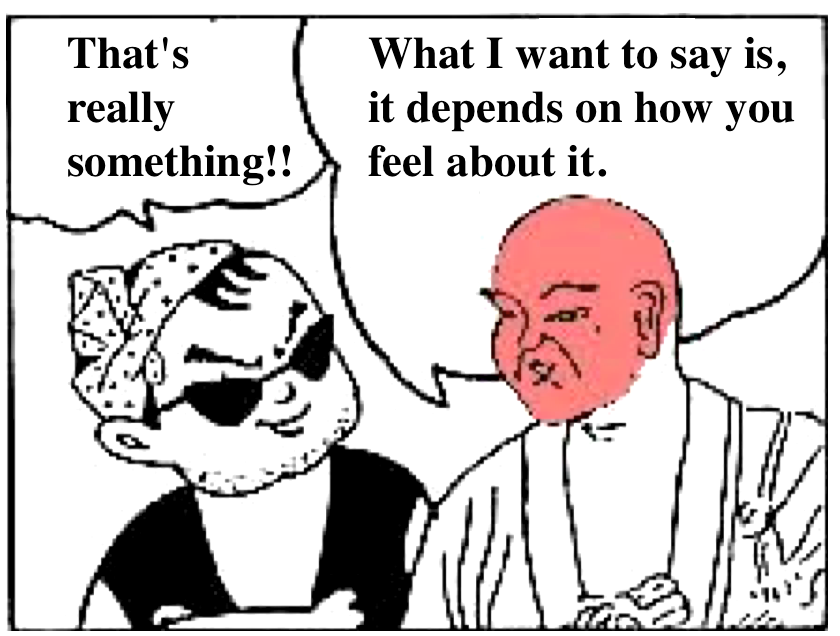
☆
 ☆
☆



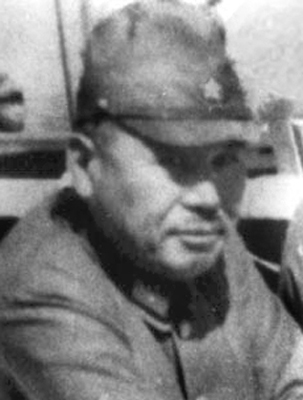



 ☆
☆